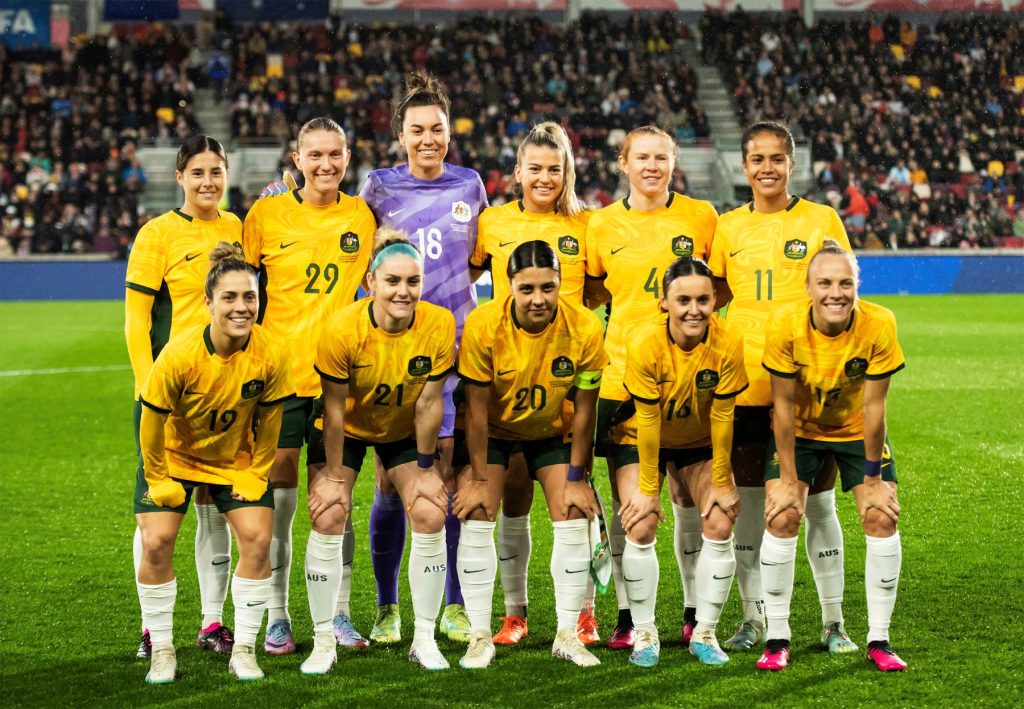It’s that time of year again when the major English language dictionaries announce their Word of the Year.
The Australian National Dictionary Centre has nominated ‘Matilda’, after our women’s soccer team’s splendid showing in the World Cup. They include the plural ‘Matildas’ and the affectionate variant ‘Tillies’.
The selection is based on ‘a word or expression that has gained prominence in the Australian landscape over the past 12 months’. Technically they should expand the definition to include names, since that’s what Matilda is.
But during its long history in Australian English ‘Matilda’ lost its initial capital and became a thing as well as a girl’s name. In the late 1800s it came to mean a ‘swag’ – the bag of possessions carried by itinerant bushmen. Swaggies waltzed their matildas as they looked for work, stole jumbucks and camped by billabongs. Banjo Paterson started it, the Tillies have cemented it in our national folklore.
Runners-up in the ANDC’s quest were ‘yesser’ and ‘noer’, referring to people who intended to vote yes and no respectively in the Voice referendum. Makes sense, but I’ve never heard anyone actually say them.
Another one I’ve never heard is The Macquarie Dictionary’s Word of the Year: ‘cozzie livs’, which has apparently become the new slang term for ‘cost of living’.
Honourable Mentions went to ‘blue-sky flood’ – the idea that there is a deluge coming even though the sun is shining, and ‘algospeak’, or algorithm speak – code words or symbols used on social media to avoid content moderation.
They give examples on TikTok such as ‘corn’ for ‘porn’, ‘unalive’ for ‘dead’, and ‘accountant’ for sex worker. Haven’t come across any of these, but I have noticed the use of numbers and symbols as stand-ins for letters, like when you use 3 for E, 1 for lowercase l, and $ for s. This comes in handy if you want to write words like ‘breast’ or ‘penis’ and not be flagged as a pervert. Or if you want to say rude four-letter words like sh1t, although in most of the examples I come across, people just use asterisks. They’re probably oldies like me who don’t spend every waking hour on social media.
Macquarie has a People’s Choice WOTY, and this year it went to ‘generative AI’. At last – one I’ve not only heard of but know the meaning!
Runners-up for People’s Choice were ‘skimpflation’ and ‘rizz’. Skimpflation is where manufacturers continue to release the same food products, but with cheaper ingredients. It’s a good partner for one that’s been around longer: ‘shrinkflation’ – reducing the size of a product while maintaining its price.
As for ‘rizz’, Macquarie didn’t even bother to explain its meaning in their media release, which made me feel very old because I had to look it up. To ‘rizz’ someone is to flirt with or charm them.
I canvassed a few of my social media-savvy friends and none of them had heard of it either but – hold the front page! – the Oxford Dictionary has, as I write, just announced ‘rizz’ as its Word of the Year.
According to Oxford, it’s been hashtagged ‘billions’ of times on TikTok, which is an astonishingly fast spread considering it was coined just over two years ago by Youtuber Kai Cenat, of whom I’ve also never heard. It seems to be the exclusive property of Gen Z – teenagers and twenty-somethings. It’s thought to derive from ‘charisma’ and can also be a noun. In June this year, 27-year-old actor Tom Holland was asked by Buzzfeed about the secret to his rizz. He didn’t say ‘what’s rizz?’ like I would have done. He replied that he had ‘no rizz’ whatsoever’, a disarmingly self-deprecating utterance for the Spiderman star.
America’s Merriam-Webster chose ‘authentic’ as its WOTY. In an age of AI and deep fakes, ‘authentic’ is what brands, influencers and celebrities all aspire to be. I detect a whiff of humbug here, especially when the word is bandied about by the likes of Taylor Swift, who talks about her ‘authentic voice’ and ‘authentic self.’ And there I was thinking it was all about fame and money.
Oxford had been considering ‘swiftie’ as one of its candidates for WOTY, along with many others all new to me. But I’m not so old that I still think a swiftie is a trick or a scam. I correctly guessed that a swiftie is a fan of You-Know-Who. Tay Tay. Now there’s one I hate.
That’s what we need: Hateable Word of the Year. Maybe next time. Merry Xmas.

